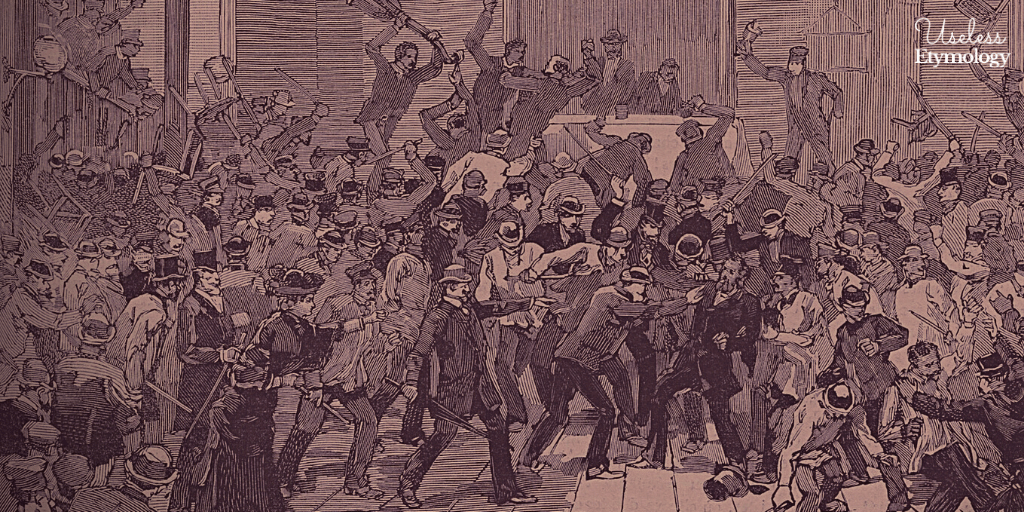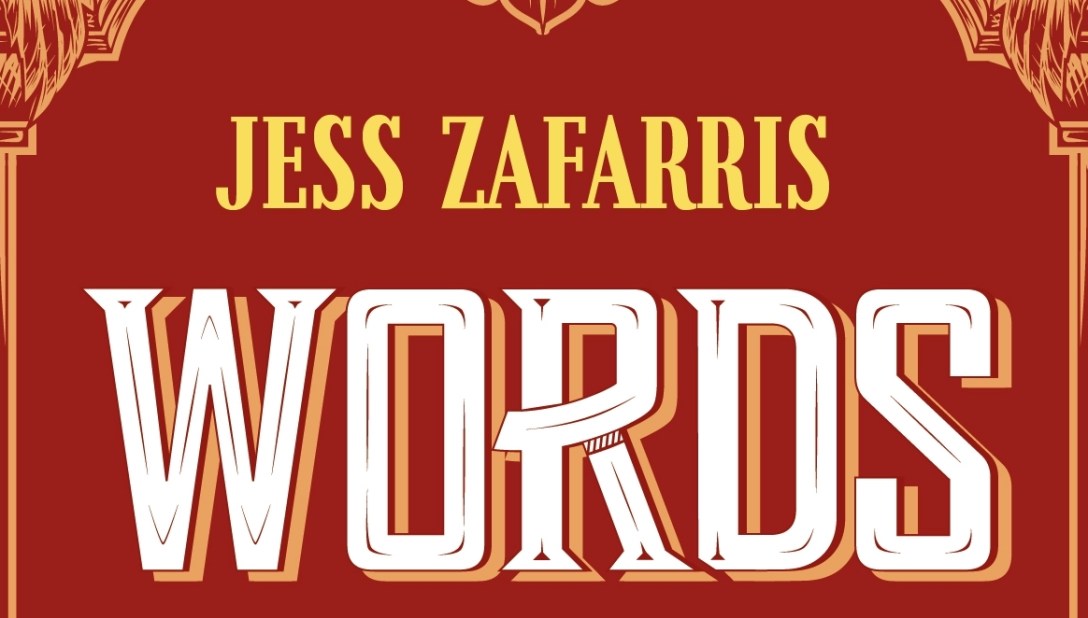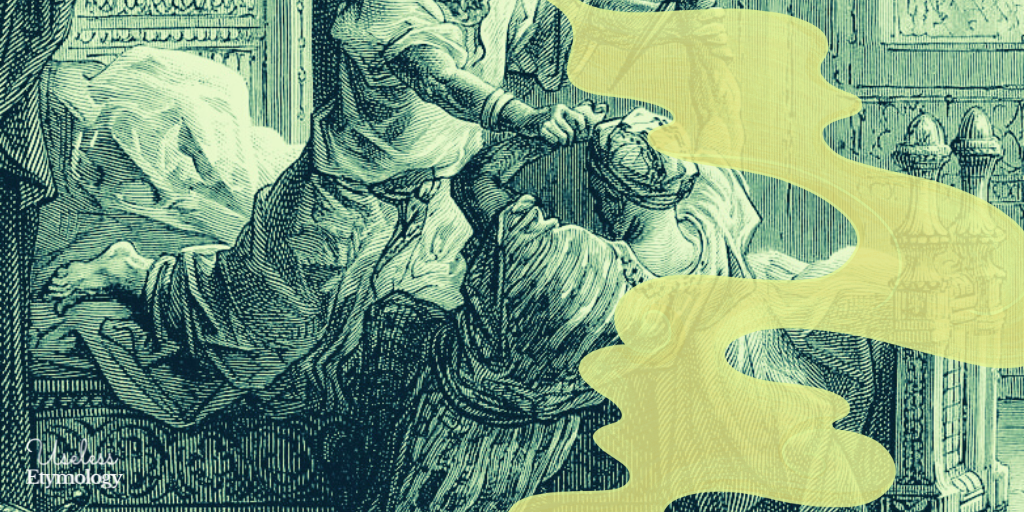Note: This is an excerpt from my forthcoming book Words from Hell: Unearthing the darkest secrets of English etymology (Chambers, 2023). Want to know something outrageous? The word “outrage” isn’t etymologically related to the words “out” or “rage.” It has completely different roots. It technically does not even contain the words “out” or “rage.” In fact, it’s… Continue reading The Word “Outrage” Technically Doesn’t Include “Out” or “Rage”
6 Fancy Words for Sexy Things
In my forthcoming book Words from Hell (Chambers 2023), I spend a hefty chapter exploring the origins of all things erotic and naughty. The following excerpt from the book explores some entertaining and enticing terms that you may not have previously encountered—and even if you have, you may enjoy learning about their titillating origins. Bathukolpian… Continue reading 6 Fancy Words for Sexy Things
“Shark” Was a Word for a Terrible Person Before It Was the Name of the Animal
Note: This is an excerpt from my forthcoming book Words from Hell: Unearthing the darkest secrets of English etymology (Chambers, 2023). Sharks were named after terrible people. That’s right. “Shark” was a word for a human before it was a word for a fish. Old English didn’t have a general word for the broad group of… Continue reading “Shark” Was a Word for a Terrible Person Before It Was the Name of the Animal
The Word “Blackmail” Has Nothing to Do With Mail
Note: This is an excerpt from my forthcoming book Words from Hell: Unearthing the darkest secrets of English etymology (Chambers, 2023). Here's a mindbending etymology fact for you: The word “blackmail” originally had nothing to do with mail as in letters, or for that matter, anything else we’d call mail today. In the 1500s and extending… Continue reading The Word “Blackmail” Has Nothing to Do With Mail
A Devilish Etymology Book Igniting This Halloween: WORDS FROM HELL
Purchase my upcoming book and invite book banners across the world to challenge the truths within. The English language is where words go to be tortured and mutilated into unrecognizable shadows of their former selves. It’s where Latin, Greek, and Germanic roots are shredded apart and stitched unceremoniously back together with misunderstood snippets of languages… Continue reading A Devilish Etymology Book Igniting This Halloween: WORDS FROM HELL
Footwear & Insubordination: The Etymology of “Sabotage”
Note: This is an excerpt from my forthcoming book Words from Hell: Unearthing the darkest secrets of English etymology (Chambers, 2023). The word "sabotage" is derived from the French word saboter, which originally meant “to clumsily bungle something,” but carried the literal meaning “to walk noisily.” The base word sabot arose in the 13th century… Continue reading Footwear & Insubordination: The Etymology of “Sabotage”
Killer Etymology: “Assassin” Literally Means “Hashish-User” (Well… Sort Of)
Note: This is an excerpt from my forthcoming book Words from Hell: Unearthing the darkest secrets of English etymology (Chambers, 2023). As the title says, the word "assassin" literally means “hashish-user”—but it also doesn't “Hashishin,” the “Order of Assassins,” and “Assassins” alone are Western European names for the Nizari Isma'ili state, a sect of Shia… Continue reading Killer Etymology: “Assassin” Literally Means “Hashish-User” (Well… Sort Of)
“Miniature” Secretly Has More to Do With Color Than With Size
Consider this: What is "mini" short for? You could argue that it's short for "minuscule" or "minimum." That would mean it's related to "minus" and "minor," which are direct adoptions from Latin, in which minus and minor mean "small" or "less." But in most uses, "mini" is short for "miniature." A mini dog breed, or… Continue reading “Miniature” Secretly Has More to Do With Color Than With Size
The Origin of Be- as a Prefix: Beknowing a Befuddling Feature of English
Have you ever considered the prefix be- in words such as begrudge, bespectacled, and bejeweled? What exactly does it mean? A lot of things, as it turns out. This Old English prefix is not related to the verb “be,” but it is related to the preposition “by,” and it is quite the lexical workhorse. Its… Continue reading The Origin of Be- as a Prefix: Beknowing a Befuddling Feature of English









